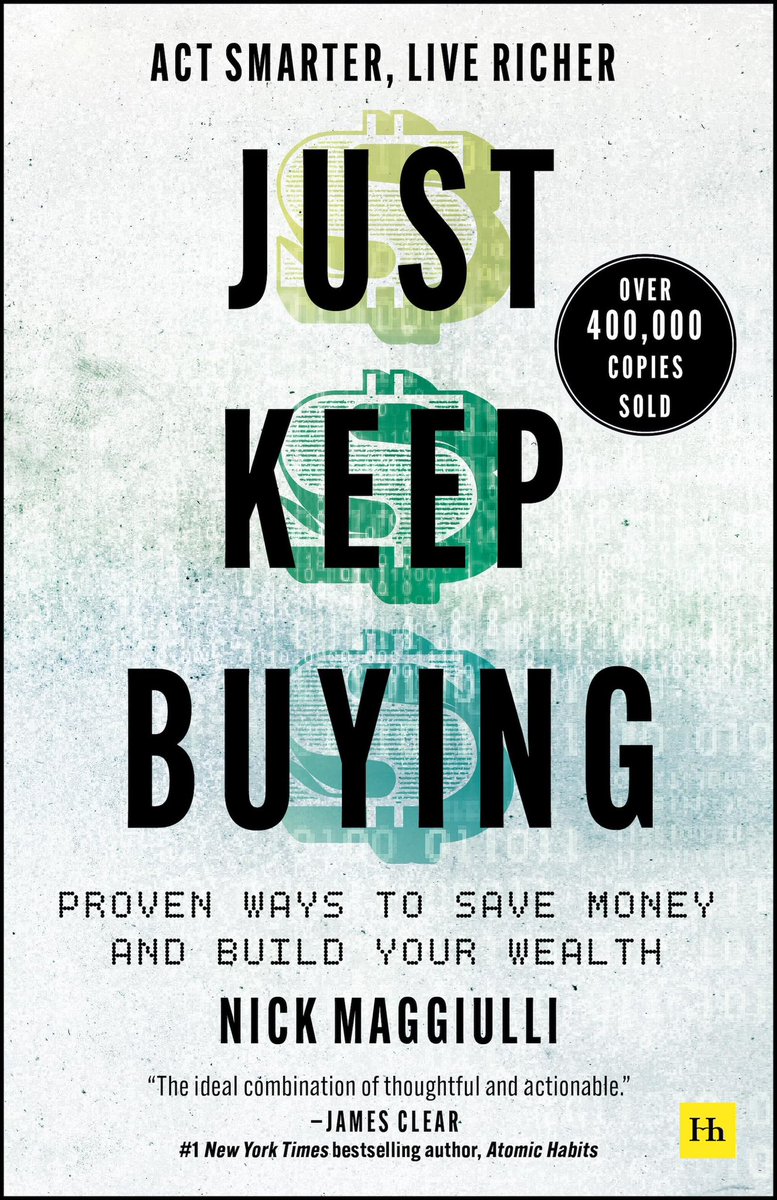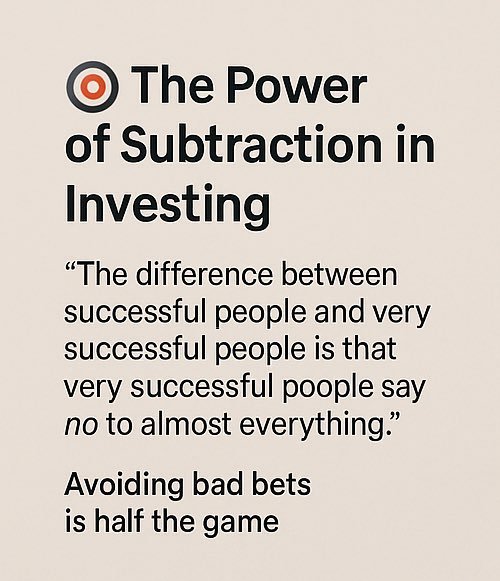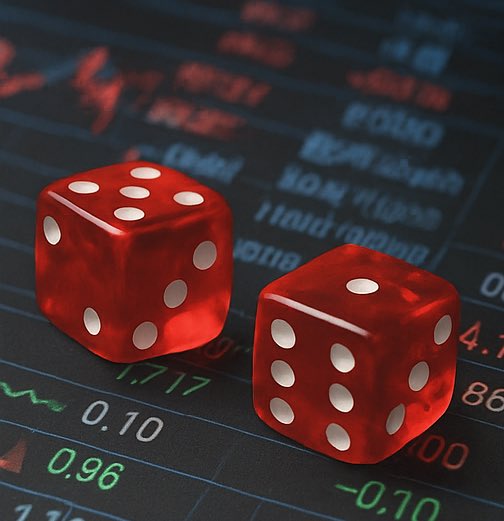“Just Keep Buying” by Nick Maggiulli is one of the most practical, no-fluff personal finance books out there.
It answers two big questions:
👉 When should you buy?
👉 How much should you buy?
Here’s a breakdown, with real PSX lessons 🧵
It answers two big questions:
👉 When should you buy?
👉 How much should you buy?
Here’s a breakdown, with real PSX lessons 🧵

Maggiulli’s core principle is simple:
Buy consistently. Ignore the noise. Let time and compounding do the work.
It’s not about timing the market, it’s about time in the market.
Let’s test this with Pakistan’s market 👇
Buy consistently. Ignore the noise. Let time and compounding do the work.
It’s not about timing the market, it’s about time in the market.
Let’s test this with Pakistan’s market 👇
Let’s say you started buying PSX stocks in the year 2000, putting in just PKR 10,000 every month into a diversified portfolio like:
1. Lucky Cement
2. MCB
3. Engro
4. Nestlé
5. MTL
Guess what happened?
1. Lucky Cement
2. MCB
3. Engro
4. Nestlé
5. MTL
Guess what happened?
Over 25 years, that PKR 10,000/month (30 lacs int total) became over PKR 6 crores+ just from dividends and capital gains.
Through wars, inflation, politics, crashes, IMF deals, and pandemics… just. kept. buying.
Through wars, inflation, politics, crashes, IMF deals, and pandemics… just. kept. buying.
One of Maggiulli’s best quotes:
“Investing isn’t about being right. It’s about being consistent.”
Even in 2008, 2018, or 2022, when markets fell 30-40% those who kept buying came out richer.
“Investing isn’t about being right. It’s about being consistent.”
Even in 2008, 2018, or 2022, when markets fell 30-40% those who kept buying came out richer.
Had you waited for the “right time” to invest in PSX, you would’ve missed the best days.
Most gains happen in just a few big up-days.
Miss them = miss the compounding.
Data shows:
Trying to time = worse results than consistent investing.
Most gains happen in just a few big up-days.
Miss them = miss the compounding.
Data shows:
Trying to time = worse results than consistent investing.
PSX gives frequent opportunities:
➡️Market crashes every few years
➡️Elections and political noise
➡️Economic instability
But each time, the longterm trend rewards patient buyers.
➡️Market crashes every few years
➡️Elections and political noise
➡️Economic instability
But each time, the longterm trend rewards patient buyers.
A great example: Lucky Cement (LUCK)
In 2001, it traded under PKR 5/share.
Today it trades around PKR 350+ with splits, dividends, and expansion into power and chemicals.
Investing monthly into LUCK = millionaire status by 2020s.
In 2001, it traded under PKR 5/share.
Today it trades around PKR 350+ with splits, dividends, and expansion into power and chemicals.
Investing monthly into LUCK = millionaire status by 2020s.
Or take Millat Tractors (MTL):
Yes, cyclical. Yes, boring.
But PKR 10K invested monthly since 2005 would now yield dividends alone worth fee million PKR/year.
That’s what Maggiulli means by:
“Buy income-producing assets early and often.”
Yes, cyclical. Yes, boring.
But PKR 10K invested monthly since 2005 would now yield dividends alone worth fee million PKR/year.
That’s what Maggiulli means by:
“Buy income-producing assets early and often.”
A key myth busted in the book:
“Should I wait for the market to crash?”
Maggiulli’s data says:
NO. Most people who wait end-up never investing.
In Pakistan, countless people waited for 2024 crash (in anticipation of recession) that never came. Index rose further instead.
“Should I wait for the market to crash?”
Maggiulli’s data says:
NO. Most people who wait end-up never investing.
In Pakistan, countless people waited for 2024 crash (in anticipation of recession) that never came. Index rose further instead.
He also tackles renting vs. owning, emergency savings, and why high income alone isn’t enough.
Wealth = Income × Investing discipline × Time
Wealth = Income × Investing discipline × Time
So what should YOU do?
✅ Pick good businesses or index funds
✅ Set monthly buy amounts
✅ Don’t overthink
✅ Don’t stop when market dips
✅ Reinvest dividends
✅ Think in decades, not days
✅ Pick good businesses or index funds
✅ Set monthly buy amounts
✅ Don’t overthink
✅ Don’t stop when market dips
✅ Reinvest dividends
✅ Think in decades, not days
If you had bought and held 4-5 solid companies on PSX from 2000 to 2025…
You would’ve outperformed 99% of traders, speculators, and “timing experts.”
You didn’t need to be a genius.
You just needed to keep buying.
You would’ve outperformed 99% of traders, speculators, and “timing experts.”
You didn’t need to be a genius.
You just needed to keep buying.
Final lesson from Just Keep Buying:
“You build wealth by buying over and over again. Even when it hurts. Even when it feels stupid. Even when everyone else is scared.”
In short:
Consistency > Genius
Discipline > Luck
Just keep buying.
“You build wealth by buying over and over again. Even when it hurts. Even when it feels stupid. Even when everyone else is scared.”
In short:
Consistency > Genius
Discipline > Luck
Just keep buying.
• • •
Missing some Tweet in this thread? You can try to
force a refresh












